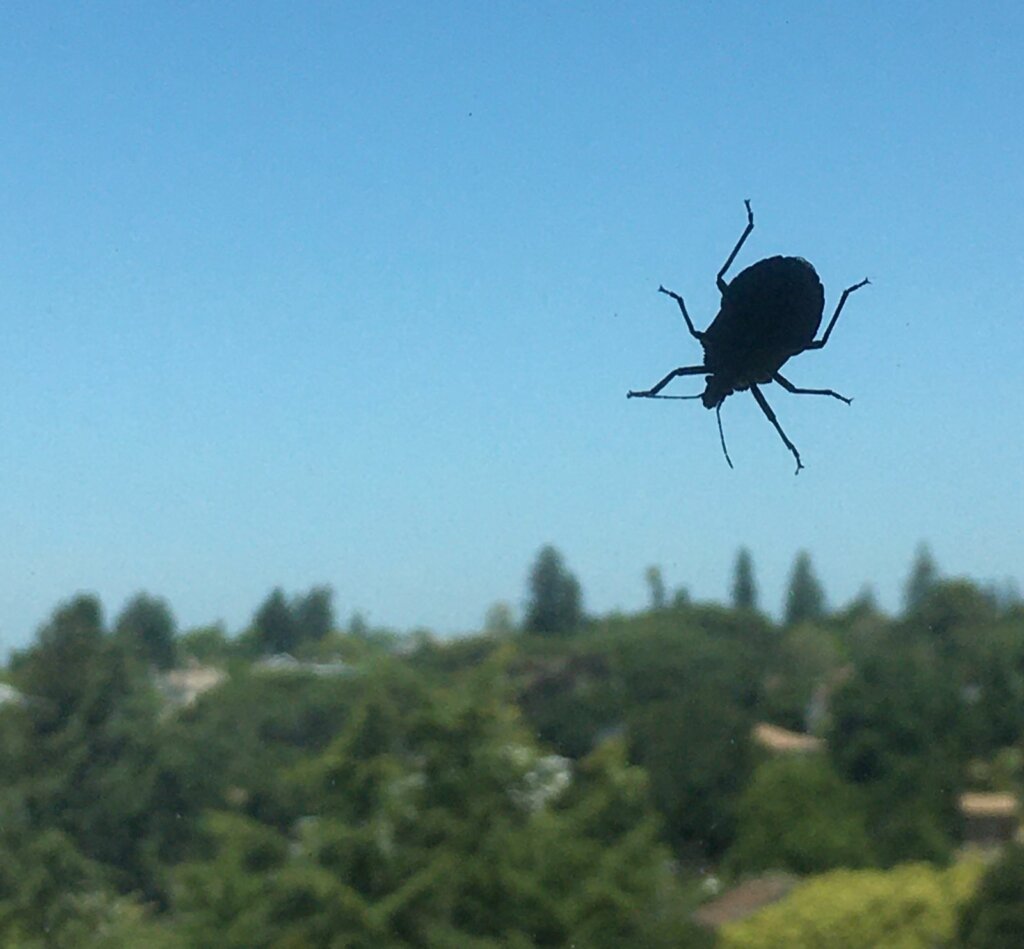Lately, I’ve been burning with shame because I don’t perceive myself doing things the “right” way. It’s … not fun and when I searched through my archives, I came across this post from January 2019. May it be a balm if you, too, are a perfectionist.
I have a confession: I make mistakes. I know, that doesn’t seem like much of a confession because everybody makes mistakes, but with the amount of shame and fear that comes up from admitting it, you’d think I stole money from little old ladies and kicked their dogs.
I notice the intensity of shame and fear shifts according to my perception of safety around making a mistake. If I make a mistake and the only person affected is me, the shame and fear levels are low. If I make a mistake at work, the shame and fear levels are high. The levels spike because my brain tells me, “I’m going to get fired! I’ll be destitute!” In my mind, the only way to stay safe at work or in my relationships is to be perfect. If I’m not perfect, something bad will happen. It’s not entirely logical but when are emotions ever logical?
A practice that helps is holding a stuffed animal that represents my inner child to my cheek like a baby and saying, “I’m here. I’m not going anywhere. I’m not ever going anywhere. I’ll meet all your needs. Nothing about you will keep me from meeting your needs.” And then I hold little me in the crook of my arm like a football and say, “I’m here. I’m not going anywhere. I’m not ever going anywhere. I’ll protect you. You can do it! Go ahead and try!” Saying those messages helped.
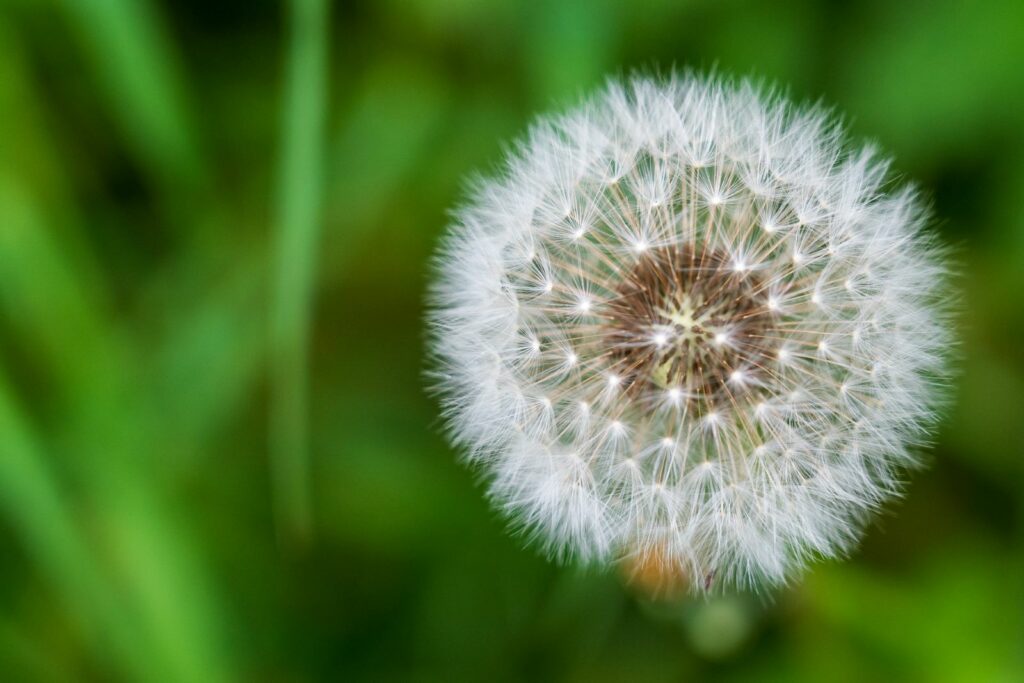
This dandelion is perfect because it’s complete. That will make sense in the next paragraphs. Photo by Nick Fewings on Unsplash
Something else that helps is remembering security doesn’t come from other people or an external source. Security comes from my actions and my alignment with an internal greater power. Money for instance doesn’t come solely from a job. It can come from an inheritance, winning the lottery, or some other wild source. If I lost my job tomorrow, I could borrow money, start a GoFundMe campaign, or any number of things.
When I’m stuck in perfectionism, my perspective shrinks and I think in black and white. However, the world is in color and much more nuanced than I remember. And also, what does perfect even mean? An early definition of perfect is, “Brought to consummation or completeness.” That’s coming from the 1913 Webster’s Writers’ Dictionary. As a one on the Enneagram, I’m all about finding holy perfection, and the practice for me is to remember that “perfect” doesn’t mean without mistakes, rather, it means completeness.
Completeness ultimately means unification with a power greater than myself, according to my spiritual tradition. I meditate and live my life in such a way that I’m moving closer and closer to a divine entity. I’m trying to unite and merge with something much subtler than I am. When I’m stuck in perfectionism, I lose sight of my journey and instead focus on a snapshot in time. I forget I’m learning and growing. I forget mistakes are an integral part of the process.
Will I still make mistakes? Yes. Will I still beat myself up about them? Probably. But more and more I’m using tools to come out of the shame spirals, to love myself, and to be in the space of acknowledging that “perfect” means not living up to a standard set by myself or someone else. Instead, perfect means complete.
I dream of a world where we remember in our quest to be perfect, really we want safety, peace of mind, and completeness. A world where we realize we are all moving toward something whole and unified. A world where we understand it’s OK to mess up because it serves us in our journey toward wholeness.
Another world is not only possible, it’s probable.
I do that thing you’re not supposed to do and take many things personally. If someone doesn’t call me back, my mind assumes it’s because they don’t want to be friends anymore. If a new person in my life doesn’t respond to a text message, it’s because they secretly hate me. As I chatted about this with one of my soul sisters she said, “Even if someone hates you, it’s not personal.”
Um, excuse me? She reminded me that people are a complex mix of preferences, past experiences, and trauma such that even something that feels intensely personal like hatred isn’t actually personal. When she said that my brain short-circuited a little so I asked her to repeat it, which she did.
I’m someone who learns by example, even if it’s through language. An example that came to mind was blanket hatred. For instance, if someone says they hate dogs, is that really something personal? How can they hate all dogs? Is it because they were bitten as a child? Did they live next door to a dog that barked incessantly? With this example, it’s obvious the hatred of dogs isn’t personal because the person isn’t bothering to see each dog as an individual. They’re extrapolating from past experiences.

Look at this face! How could hatred be personal? Photo by Justin Veenema on Unsplash
It’s a little harder for me to apply this principle to humans but the questions are similar. If someone hates me, do I remind them of their mother, with whom they have a terrible relationship? Am I too similar to their older brother who was a bully? That’s not really about me then, is it? It’s about the other person and their previous relationships. This is exactly what Don Miguel Ruiz writes about in his book The Four Agreements, a book about personal freedom. The second agreement is, “Don’t take anything personally” and he says:
“Whatever happens around you, don’t take it personally … Nothing other people do is because of you. It is because of themselves. All people live in their own dream, in their own mind; they are in a completely different world from the one we live in. When we take something personally, we make the assumption that they know what is in our world, and we try to impose our world on their world.
“Even when a situation seems so personal, even if others insult you directly, it has nothing to do with you. What they say, what they do, and the opinions they give are according to the agreements they have in their own minds.”
We are all interfacing with the world in our own minds. Information is coming into each mind but it’s not filtering in the same way. Essentially, we all live in our own little worlds. I don’t know what’s going on for someone else because they’re living in their world and I’m living in mine. I like to pretend I know what’s happening in someone else’s world by making assumptions and taking things personally, but I know only a smidgen of what’s going on for them.
Have I suddenly stopped taking things personally after one conversation with one friend? Of course not but I feel a little better now. I’m more at peace with other people maybe not wanting to be friends or secretly hating me because instead of jumping to make it about me, I’m pausing. I’m reminding myself it’s not about me. It’s not personal even when it feels personal. And that, I think, is progress.
I dream of a world where we remember we’re all living inside our own minds, creating stories and characters. A world where we understand people are complex and come with their own histories that we often know nothing about. A world where we realize even if something feels personal, it’s not.
Another world is not only possible, it’s probable.
When I was 20, I studied abroad in London and noticed a man hanging up a payphone before he approached me. He sold me a song and dance about how he lost his luggage, had no money, and needed help. He told me I should write down my address so he could pay me back and being the gullible and trusting person that I am, I bought everything he said. He was effusive in his praise, saying, “God bless you and your family. You’re a good person,” etc. I felt like a hero in the moment.
Looking back though, it was a scam. He hung up the payphone as soon as he saw me like he was searching for a target. And he was too over the top, too aggressive, and didn’t act at all like a desperate person who had truly lost their luggage and all their belongings. That man had no intention of paying me back and only wanted to make a quick buck preying off naïve girls like me. I felt like an idiot after the fact for believing this man and I let it color all my future interactions with people asking for money.
Fast forward three years and while walking to work in San Francisco, a man who looked dazed and had a cut on his forehead approached me and said he was just mugged. He, too, asked for money but I refused because I wasn’t sure I could trust him based on my past experience with the man in London. My reasons were valid but looking back, he really was in need of help and I botched that service opportunity. In that story for that man, I wasn’t the villain because I didn’t mug him but I’m sure he cast me in the role of a jerk. And he’d be right.
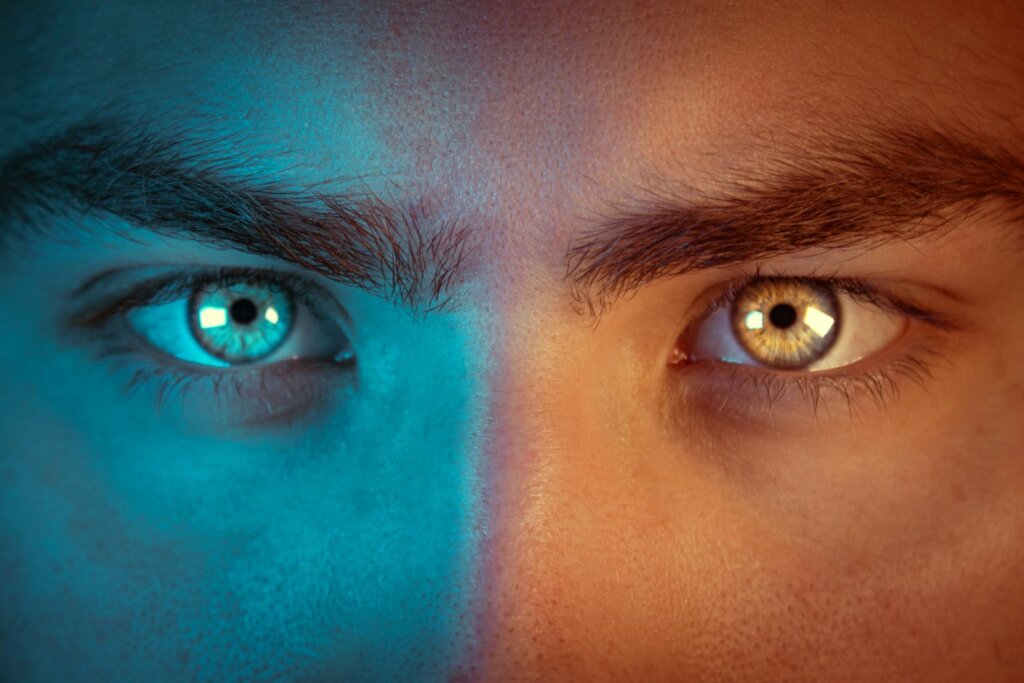
Human beings are multifaceted. Photo by Gabriel Meinert on Unsplash
Oftentimes we paint ourselves in certain lights and have a static self-image. “I’m a good person,” we might say. Or, “He’s a bad man,” but the truth is far more complicated. We are all heroes and villains depending on the circumstances. We are all good and bad and to think otherwise only exacerbates what psychologists call cognitive bias, which is what it sounds like. It helps us make sense of the world and reach decisions with relative speed but a bias also means we discard information that doesn’t prop up our view of reality or a person.
While in some ways a cognitive bias is helpful, it’s also harmful because it has us ignoring certain behaviors or information. And on a personal level, it keeps us from growing. In order to grow, we have to see things as they really are, not what we think they are, ourselves included.
This topic is on my mind because I see a heck of a lot of people saying, “I could never do that,” which is patently false. We are all capable of good and evil. We are all heroes and villains. That’s because there are two forces constantly playing tug of war in this universe: vidyá and avidyá.
They could be translated into good and evil but that’s not quite right. They’re about the movement toward subtlety or crudeness. Avidyá seeks to drag the mind toward crude objects and bind us to the things of this world like cars, homes, and luxury goods. But it also binds us to staticity in the form of ideas. Vidyá pulls the mind toward higher ideals and asks us to expand beyond narrow sentiments, including trying to put ourselves and others in neat boxes. The force of vidyá says, “You will make mistakes but you can learn from them and become a better person.” And that’s exactly what I want for us all.
I dream of a world where we recognize we are all like the yin-yang symbol with a little bit of everything. A world where we understand no person is wholly good or wholly bad. A world where we remember there are two forces in the world pulling us toward crudity or subtlety. A world where we choose to turn toward subtlety whenever and wherever we can because we remember we all have the capacity to be heroes as well as villains.
Another world is not only possible, it’s probable.
For the first time in many, MANY years I hosted a group meditation at my apartment. It sparked a cleaning frenzy and had me looking at my apartment with fresh eyes. Almost exactly four years ago I stuck two pieces of masking tape above my doorknob with the phrase, “This life now belongs to love and anything can happen.”
As you can guess, after four years I barely register those pieces of masking tape but today they struck me anew. The phrase comes from Tosha Silver’s book It’s Not Your Money, which I reread every February not because I plan on it but because that’s when I need a reminder that the Divine Beloved is my source for all. This ties into my post from last week about acting as if all is well in my world and that there’s an ever-present loving entity that wants to help me, that’s running this entire show we call life anyway.

Let your life belong to love. Photo by Tim Mossholder on Unsplash
Tosha remarks people often say, “You’ll never find a parking spot in that area,” or “You’ll never find a house in this market.” Her response is, “You’re right. You won’t find a parking spot … without God.” “You won’t find a house in this market . . . without God.” She encourages people to recognize with God/Source/the universe anything and everything is possible. If something is in our best interest, if it’s in our highest good, the Divine Beloved will make it so. Even if parking is terrible, the housing market is fiercely competitive, the economy is in the toilet, etc., what we need will always come to us.
Living in such a way requires that we let go of old stories and understand no matter what happened in the past, we can do things differently now. We can live a new reality where life belongs to love and anything can happen. Doing so opens us to magic and possibilities. It means we are letting ourselves be taken care of by something greater than ourselves.
This concept of letting life belong to love also means that I’m letting love lead the way. It’s seeing there is a divine presence here, in this moment, in every moment. It’s recognizing a loving force moves through me and through you. And again, I can consciously invite that loving force into my life.
I’ve been on the spiritual path for a long time and I still need the reminder that surrender doesn’t only happen on the meditation cushion. Real surrender means saying, “Hey God/higher power/universe, I want you to take care of this. Please guide my actions. I trust where you are leading me,” and then letting go, knowing whatever needs to come, comes, and whatever needs to go, goes. I let this life belong to love.
I dream of a world where we recognize the power and the presence of a loving force in our lives. A world where we’re able to surrender and let go of our micromanaging tendencies and fully trust all true needs will be met, and often in amazing ways. A world where we realize things work out better if we let our lives belong to love.
Another world is not only possible, it’s probable.
One of my soul sisters sent me a birthday card that says, “This card is decorated with matter-of-fact boldness and fierceness, and so it is especially suited to you.” Her words keep ringing in my ears because I don’t feel particularly bold or fierce and I have trouble embracing those descriptions because for much of my life, the word “too” has been attached to adjectives describing me: too sensitive, too intense, too much. Some parts of me want to shrink and play small in order to stay safe. If I hit a certain threshold of boldness, fierceness, and intensity, I want to reel it back in but I’m not able to do that anymore.
My body is making it clear that I’m expanding my threshold, that I can’t keep holding myself back. And in the external world, I’m receiving affirmation that living boldly is a good thing. This weekend I went to “Let’s Glow SF,” which is a festival that projects visual art onto the side of buildings and plays accompanying music. These are 285-foot projections of penguins and ships and geometric shapes. These are unapologetic pieces of art that are made to be noticed. I didn’t hear a single person say, “I wish they were smaller.” Instead, every person appreciated how big and bold the art was. We all oohed and aahed at how cool it was to see art of this magnitude.
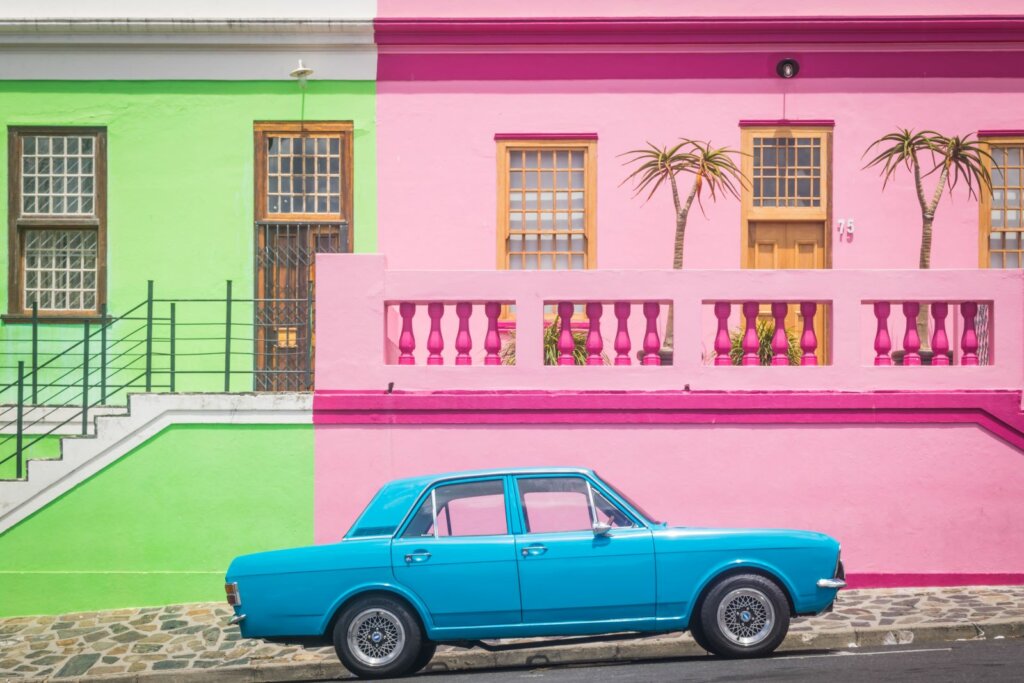
The colors! The beautiful boldness! Photo by Claudio Fonte on Unsplash
Another affirmation about living boldly comes from one of my non-blood nephews. At almost 20 months, his favorite expression at the moment is, “More, more.” Stirring tealights in a metal bowl? “More, more!” Having a dance party in the living room? “More, more!” If it’s not’s bedtime or something harmful, the adults in his life are acquiescing to “more, more.” As someone who’s used to “less, less,” it’s astounding to give and receive “more, more.” It’s sweet to watch the fullness of my nephew be celebrated. Witnessing him, I see that the passion and excitement truly are a part of his makeup. What if the same is true about me?
In my spiritual tradition, we say everyone is born with certain inborn traits and characteristics. It’s how we’re made, if you will. The environment also shapes us so this isn’t a “nature versus nurture” thing, more like a “nature and nurture thing.” How this relates to me is that I’m not “too” anything. I’m just right because I was born this way. I’m a highly sensitive person and that means I’m attuned to things other people don’t notice. I’m a passionate person and that means I love deeply. I’m a direct person so nothing is hidden with me.
I won’t qualify those characteristics by saying they’re good or bad because the truth is the answer varies depending on who you ask. Some people will think I’m “too” whatever. But others will think I’m not “enough” whatever. The more important question is how do I feel? How I’m feeling is that I want to be my full and true self. I want to be more of who I am without self-imposed limitations. I want to be like the artwork I absorbed this weekend and my nephew who’s a delight. I want to be the person my higher power made me to be, and that includes someone bold and fierce. And I want that for you too.
If voices tell you you’re too much or not enough, I encourage you to question whether that’s true. Is it the capital “T” Truth or is it just someone’s opinion? Would someone else think differently? Could you, too, embrace the fullness and authenticity of who you are? If so, I’ll be over here cheering you on.
I dream of a world where we allow ourselves to be who we are. A world where we recognize people will always have opinions about how we should act but that doesn’t mean we have to pay attention to them. A world where we express the fullness of ourselves because we understand we were made the way we are. A world where we allow ourselves to live boldly and fiercely.
Another world is not only possible, it’s probable.
My self-esteem has taken a beating this week and it’s all been self-inflicted. I’m comparing myself to other people and coming up short. And look, I know someone out there envies me (and you too), that comparison is the thief of joy, etc., but that doesn’t help me in the moment when my chest burns and my cheeks get hot with envy. It doesn’t help when I’m looking over at so-and-so, marveling at their achievements and wishing I had the same but don’t. My rational brain might as well not exist for all the good it does me when I’m emotionally activated.
The emotional self needs soothing and one way I’m doing that is coming back again, and again, and again to a quote from Richard Tarnas‘ book Cosmos and Psyche. He says there are two ways of grappling with the universe and uses the analogy of two suitors to explain them. In the first approach, the suitor treats the universe as if it has no intelligence and is something to be exploited for his own gain. In the second, the suitor seeks to know you (the universe):
“[N]ot that he might better exploit you, but rather to unite with you and thereby bring forth something new, a creative synthesis emerging from both of your depths. He desires to liberate that which has been hidden by the separation between knower and known. His ultimate goal of knowledge is not increased mastery, prediction, and control, but rather a more richly responsive and empowered participation in a co-creative unfolding of new realities.”
In other words, we are all bringing forth something new and unique as we co-create with the universe. Yes, there are billions of people on the planet and many of them might be doing similar things to me but no person has my unique set of circumstances, experiences, beliefs, and talents. And I’m here to give form to something that would otherwise not exist in the 3D world.
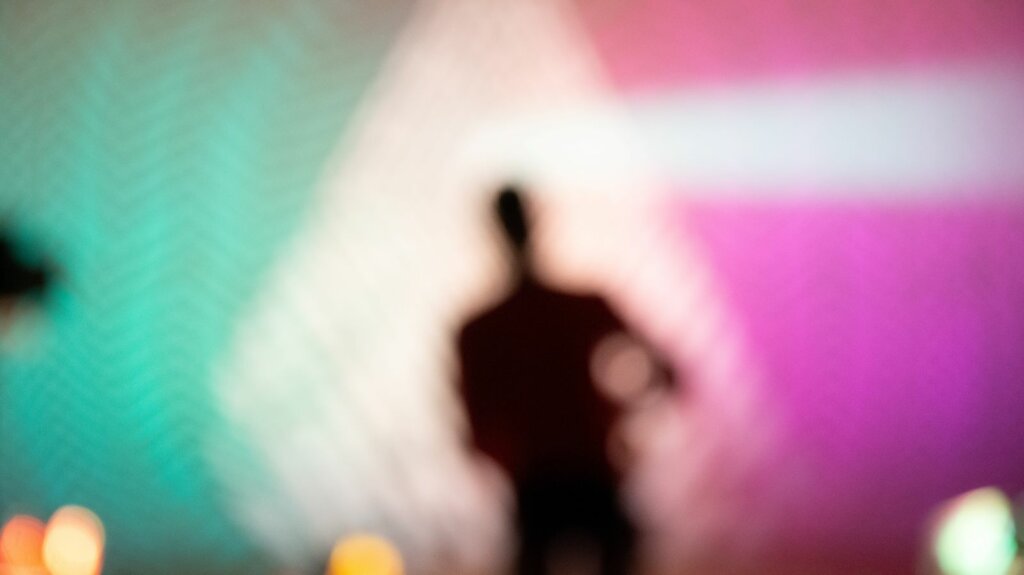
We all have a role to play in co-creation. Photo by Steven Weeks on Unsplash
Posted on my bathroom mirror is the question, “What does my higher power want to work through me? And what part of self needs to step aside in order for that to happen?” It’s a good question. When I’m looking over at so-and-so doing such-and-such, I’m not asking that question. Instead, I’m asking why I can’t be like that person. Doing so robs me and the universe of a gift that could otherwise come into being.
I know it’s cliché to say everyone is unique and special but … everyone is unique and special. There is something only you can birth as you’re participating in a co-creative process with the universe. A quick story for you from Elizabeth Gilbert’s Big Magic: Liz had an idea to write a novel about Brazil in the 1960s that she summarized as such: “It’s about this middle-aged spinster from Minnesota who’s been quietly in love with her married boss for many years. He gets involved in a harebrained business scheme down in the Amazon jungle. A bunch of money and a person go missing, and my character gets sent down there to solve things, at which point her quiet life is completely turned into chaos. Also, it’s a love story.”
Liz researched this story, even sold the idea to a publisher, but got sidetracked by life things. When she came back to the idea two years later, it didn’t have any juice anymore. She couldn’t write it. During this time, she met Ann Patchett and they developed a friendship. They exchanged long, handwritten letters and Ann casually mentioned she was writing a story about the Amazon jungle which could be summarized in exactly the same way as Liz’s.
The finer details of the novel were different but the idea was essentially the same. There’s a lot I could say about this story but the relevant part for this post is that coming from Ann, the story was slightly different — it was a contemporary story, not set in the 1960s. Ann’s was about the pharmaceutical industry and not the highway construction business. She put her spin on it in a way that Liz could not. She made it special because it came from her, not Liz.
There are a ton of similar ideas floating around in the ether but the way I make them concrete, the way you make them concrete, matters. Focusing on what someone else is doing misses the point. All of us are special and all of us have something of value to bring forth into the world. The more we recognize that, the better.
I dream of a world where we realize we’re in a co-creative dance with the universe. A world where we understand every person is bringing forth something that couldn’t have existed without them. A world where we realize there may be a million similar ideas that people are working on but the way we work on them matters. A world where we remember that all of us are special.
Another world is not only possible, it’s probable.
I’ve lived in my apartment for eight years so I’m familiar with what’s usual and unusual. On Saturday, something strange happened. I walked into my bedroom and a giant beetle crawled on the outside of my window. I’m on the second floor, not next to trees, kudzu, or anything nature-y that would warrant a giant beetle crawling on my window but crawling it did.
As I watched this beetle, it occurred to me this creature was likely completely unaware of my presence because the windows are slightly tinted. Yet, inches away I stood, observing. This beetle reminded me that the way I watched it is the way my loving higher power always watches me and guides me, according to my spiritual tradition.
It’s easy for me to forget this concept, and sometimes believe it, especially when life doesn’t go how I want it to. When I don’t get my way, I’m convinced my higher power doesn’t care at all but that’s not true. Sometimes I need to wait and then I’ll understand why things unfolded the way they did. For instance, earlier this week, a client asked me if I was interested in a rush writing job. I said yes but then they gave it to another writer who responded quicker than I did. I was upset because I need the money, like really need the money. Like, I’m-having-to-use-savings-to-pay-rent need the money.
When I didn’t get the job, my first thought was, “How could you do this to me, higher power? You know how broke I am and you’re going to dangle this carrot and then snatch it away? Really? Really? That’s so mean.” I kept fuming, not being in faith, and the day I didn’t get the rush job, as well as the day after, and the day after that, I was so low energy I struggled to make dinner, wash my dishes, and do other grownup things.
It’s not because I was depressed about the money situation. It’s because I’m a spoonie so this happens to me from time to time. Instead of having energy reserves, when I’m out of energy, I’m out and cease functioning. If I received that rush job, would I have been able to finish it? Would I have felt even worse and pushed my body to do something it literally could not do? Probably. In other words, this was an instance of my higher power doing for me what I could not do for myself. Higher power said “no” for me because I wouldn’t have said “no” given the chance.
My spiritual teacher says, “The Macro-psychic Entity [aka, Higher Power, God, the Divine Beloved] is omniscient … There is no special endeavor, and no necessity for special effort, to know anything because all things are within [It] and all are within [Its] ectoplasmic dispersion …. Everything is [Its] internal mental projection, intra-psychic projection. That is why [It] knows everything and will always know everything.”
The Divine Beloved knows everything and will always know everything. That means this force understands when it’s in my best interest to work versus rest. This entity knows what the future holds for me before I even have an inkling of it. This entity is always there, always watching over me as if I’m a beetle crawling on Its window.
I dream of a world where we remember we are always being watched over by benevolent beings. A world where we recognize the Divine Beloved is omniscient, which means It knows all and sees all. A world where we trust even if we don’t understand why something is happening, there is likely a good reason for it and if we wait, we may learn the answer.
Another world is not only possible, it’s probable.
I’m recycling this post from February 2019. The message about not needing to know everything all the time is still a valid one. Enjoy.
My therapist said something to me this week that I’d heard before but this time I really heard. He told me, “There are some things you don’t need to know.” I’m a curious person and want to know everything! Curiosity is a key component of being a journalist; it’s my job to find out as much as possible about a story. However, truly, there are some things I don’t need to know.
I understand this concept better when I think of children. Children are not served by hearing the full details of scary or complex things. We don’t tell them graphic details of war or rape. We may paint with broad brushstrokes or present information in a way they understand, but children don’t need to know everything.
In many spiritual traditions, God/higher power/the divine is parentified. We are usually called divine children of God or a variation of that, and so it follows that higher power treats us the same way a parent would, meaning, the universe shields us from certain information. I’ve said before if I knew all the things the universe had in store for me, I would get overwhelmed. That continues to be true. After contemplating I don’t need to know everything about the future, I feel more at ease. I feel more at peace. I trust that while in my professional life it’s my job to gather as much information as possible, the same doesn’t apply to my personal one.
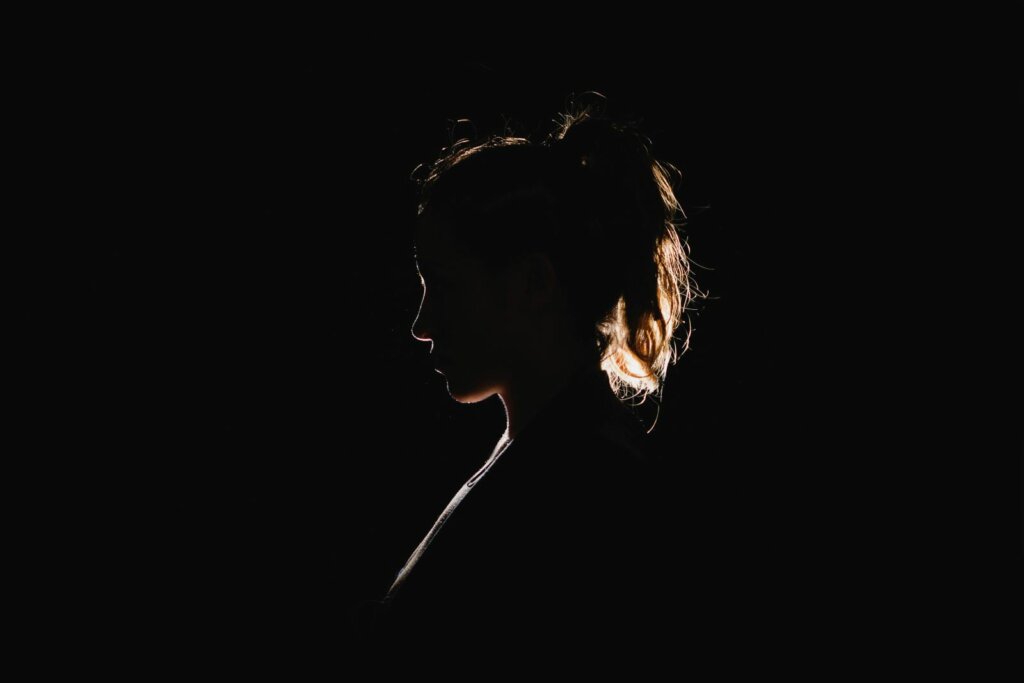
Sometimes it’s OK to be in the dark. Photo by Molly Blackbird on Unsplash
We have the saying, “Ignorance is bliss.” I usually think about that expression with wistfulness, wishing I could go back in time and remain ignorant of bad news. Or I utter it with envy, wishing I could be like someone else who doesn’t know what I know. However, maybe I can continue to experience bliss in the form of ignorance by remembering I don’t have to answer every question; I don’t have to know what will happen next. Maybe it’s OK for me to be in the dark sometimes and trust it’s for a good reason. Perhaps I can relax into the knowledge I am still a child and there is still a parent taking care of me. Not my birth parents, although them too, but also an unseen parent, a mystical parent.
My spiritual teacher says Cosmic Consciousness must look after us, the divine children. He also said this Cosmic Consciousness does whatever is best for us, and that this divine energy better knows our needs and necessities.
“A child of two months does not know what she requires; her mother knows,” he wrote. “She is solely dependent upon her mother. Similarly, devotees are solely dependent on the Cosmic Father, and for that reason, the Cosmic Father has a special responsibility.”
For today anyway, I’m feeling into that more, letting myself be a child. I’m letting myself swim in ignorance, recognizing the bliss that comes with it. I’m remembering I don’t need to know everything. That sometimes there’s value in staying in the dark.
I dream of a world where we realize sometimes it’s OK to not know. A world where we understand that sometimes being in the dark is what’s best. A world where we realize we are like children and there is a force greater than us in the world. A world where we remember that force is here, acting as our parent.
Another world is not only possible, it’s probable.
I enrolled in a novel writing class and I confessed to a fellow writer that I feel a lot of pressure to put into practice everything I’m learning. I want my dialogue to conceal and reveal. I want to keep the reader guessing but not withhold too much. I want the plot to be engaging while also emotionally stirring. And I want to do all that perfectly in the first draft.
There aren’t many areas of my life where perfectionism continues to show up, but this is one of them. I care so much about the heroine’s journey novel I’m writing and that means I want to do this story justice. I want it to be the best book it can possibly be and so, hello perfectionism. When I shared this angst with my friend she said to me, “Give yourself the grace of being a newcomer,” and it felt like rubbing aloe vera on a sunburn.
Ahhhhh. Grace. Yes. I know people talk about writing terrible first drafts and understanding that’s a part of the process, but characterizing a draft as “terrible” is a judgment. There’s space for perfectionism because if you know a draft is terrible, that means there’s a certain standard you have for the draft that it’s currently not meeting. When I say to myself, “This draft is awful. God, I can’t believe I wrote this,” I’m judging my efforts and not giving myself grace.
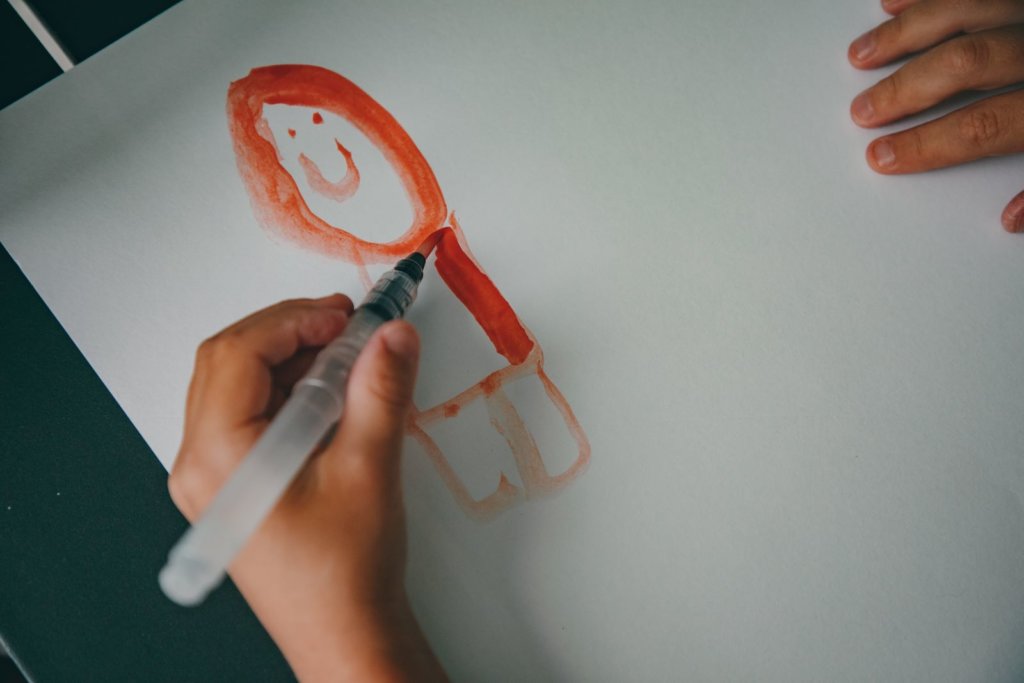
What if I let myself learn like a child? Photo by Anima Visual on Unsplash
I’ve never taken a creative writing class before. I know nothing about novel writing. I didn’t get an MFA; I got a bachelor’s in journalism. Ask me to write an anecdotal lead and I can bang one out in a jiffy. Ask me to write a novel and I’m stumped. In other words, novel writing is completely new to me and by holding myself to a high standard, I’m stifling creativity. I’m not letting myself play around. I’m not extending compassion and forgiveness toward myself. In other words, I’m not treating myself like I treat other beginners.
When my young nieces and nephews draw me a picture, I don’t say, “This is terrible. The head is three times larger than the rest of the body.” No, I exclaim in delight and say, “Wow! Look at that!” because they’re young and they’re just learning how to draw. I want to encourage them to keep going because they enjoy it. I don’t have expectations my nieces and nephews will be famous visual artists by the age of 8. I’m letting them be kids. However, I don’t do that with adults, either myself or others. As adults, there’s an expectation that we are at least competent with whatever we’re doing. That means not sucking at surfing, or not playing the piano without striking the wrong key, regardless of how long we’ve taken lessons.
Psychiatrist Dr. Gail Saltz says, “Culture is consumed with being an expert.” In fact, average levels of social perfectionism rose by about a third from 1989 to 2016 in a study of 41,000 college students. Is that number higher now? Probably.
We’re not giving ourselves the grace of being a newcomer. Even in the numerous articles I read on this topic, the writers said, “Let yourself fail,” or had titles with, “The case for being bad at something.” One even mentioned you’ll start off sucking but eventually, you’ll get better at crocheting or whatever your activity is. How about if we changed that narrative?
What if instead of proclaiming something we’re doing is good or bad, excellent or terrible, we let ourselves just be? What if we treated ourselves like small children, encouraging ourselves to keep learning and growing without judging the outcomes? I’d likely enjoy what I’m doing more. Maybe you would too.
I dream of a world where we approach new skills and hobbies with an open mind. A world where we leave judgment out of the equation as we learn something new. A world where we stop expecting we’ll be an expert at whatever we try. A world where we give ourselves the grace of being a newcomer.
Another world is not only possible, it’s probable.
I feel unsettled after learning what happened to novelist Salman Rushdie on Friday. If you’re unaware, he was stabbed as he prepared to give a lecture in upstate New York. He suffered wounds to the neck and abdomen and is thankfully on the road to recovery, according to his agent.
It’s believed the attack is in connection to Rushdie’s late-80s book The Satanic Verses, which many Muslims consider blasphemous as it mocked or at least contained mocking references to the Prophet Muhammad and other aspects of Islam. There’s also a character based on the Supreme Leader of Iran and after it was published, Iranian leader Ayatollah Ruhollah Khomeini issued a fatwa, or edict, calling for Rushdie’s death.
I’m upset by multiple things. One, the stabbing occurred during a lecture, an event you would think was safe and peaceful. Two, multiple people were so enraged by words, not actions, words, they sought to kill someone. That’s pretty intense. And problematic because to quote Rushdie, “The moment you say that any idea system is sacred, whether it’s a religious belief system or a secular ideology, the moment you declare a set of ideas to be immune from criticism, satire, derision, or contempt, freedom of thought becomes impossible.”
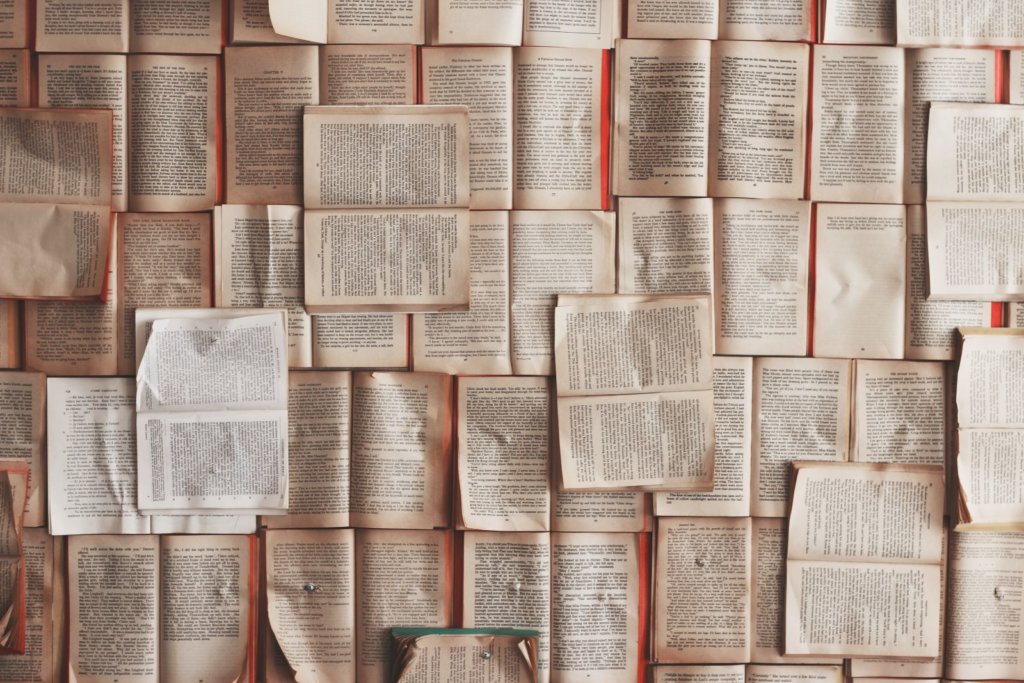
Critical thinking is key. Photo by Patrick Tomasso on Unsplash
Freedom of thought becomes impossible because instead, people sink into dogma. Dogma is thinking without logic or reasoning. And once a person does that, they start doing something because someone else told them to, which is dangerous because they can become easily manipulated by others. They fall prey to schemes and cause real harm to themselves and others.
Dogma can also be the reverse, by the way. It can be disregarding what a certain person, group, or organization says just because of their identity. My spiritual teacher says, “[D]ogma has had an extremely negative influence on ordinary people .… By arousing narrow sentiments, the adherents of dogma hope to fulfill their selfish aspirations … The followers of dogma do not want people to tread the path of rationality … The worst propounders of dogma – the kings of dogma – do not want people to develop mental clarity. They do not want the penetrating illumination of the sun’s light to pierce through the mists of dogma. They do not want people to bathe in the radiant light of the day and stand under the clear, unclouded sky.”
It’s also the case we fall prey to dogma internally, without someone acting as a puppeteer. We see this on social media with “stans,” or super fans that are overzealous and obsessive. They think the person they follow can do no wrong, and when the person inevitably makes a mistake, because, hi, they’re human, some stans dig their heels in and defend the person. People who aren’t super fans will engage in a takedown and explain why the person is trash and should be “canceled” or stop receiving support. From Merriam-Webster, “The reason for cancellation can vary, but it usually is due to the person in question having expressed an objectionable opinion, or having conducted themselves in a way that is unacceptable so that continuing to patronize that person’s work leaves a bitter taste.”
I understand that reaction and sometimes I think it’s warranted. However, this approach misses nuance. Every person is both a hero and a villain. Every person is capable of good and evil. It doesn’t make sense to follow a person as if they are an infallible, perfect human being. I know it’s funny to quote my spiritual teacher again here, but even he said, “Even if a young boy says something logical, it should be accepted, and if the Supreme Creator Brahma says something illogical, it should be rejected as rubbish.”
I agree. Use your brain. Dogma can be alluring because it’s easy and doesn’t require effort, but you have a brain and if you don’t use it, that’s not beneficial for anyone.
I dream of a world where we recognize no idea, person, or belief system is above scrutiny. A world where we don’t accept someone else’s words hook, line, and sinker, no matter who they are. A world where we use logic and reason to make the world a better place and bathe in the radiant light of the day.
Another world is not only possible, it’s probable.
